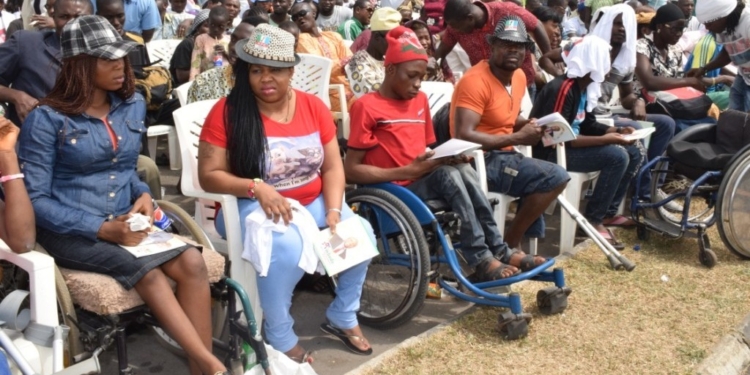The Executive Director of Albino Foundation, Jake Epelle, has called for the disability-inclusive reforms of the Electoral Act with a view to promote the participation of Persons With Disabilities (PWD) in the electoral process.
Epelle made the call while speaking at a media roundtable aimed at discussing the role of the media in promoting electoral reforms which was convened by YIAGA Africa, European Centre for Electoral Support (ECES) and EU-Support for Democratic Governance in Nigeria (EU-SDGN).
Epelle disclosed that there are numerous loopholes in the Electoral Act as regards PWDs stressing that some discriminatory words against PWDs should be reviewed.
He quoted a section of the Act that recommends that PWDs be supported and assisted while casting their vote, adding that the provision of the Act doesn’t give the PWD voter his independence to exercise his franchise as other voters.
The Act provides that “a voter who is blind or is otherwise unable to distinguish symbols or who suffers from any physical disability may be accompanied into the polling unit by a person chosen by him and that person, shall after informing the Presiding Officer of the disability, be permitted to accompany the voter into the voting compartment and assist the voter make his mark in accordance with the procedure prescribed by the commission.”
Epelle suggested that the Independent National Electoral Commission makes available materials that would enable PWD voter exercise their rights independently as he opined that if adequate provision are made for PWDs regardless of their type of disability, they won’t require support from others, who might undermine their right to deciding who to vote for.
He also urged the media to provide adequate support for PWDs in all their messaging, special features and editorials.
Also speaking at the roundtable, Toun Okewale-Sonaiya, MD/CEO Women Radio called on media practitioners to be deliberate in being gender sensitive in all their reports.
She stated that media owners should give special considerations to women running for political offices and strategically make the people know them as it would help in creating a level playing field for all candidates irrespective of their gender.
Okewale-Sonaiya said, “the media need to be deliberate and intentional in reporting women in politics, they also need to educate the electorate to give a fair playing field to women.”
She stressed that reports should focus on women’s capacity and competencies rather than their personal lives, which is not applicable to their male counterparts and often puts them at a disadvantage.

